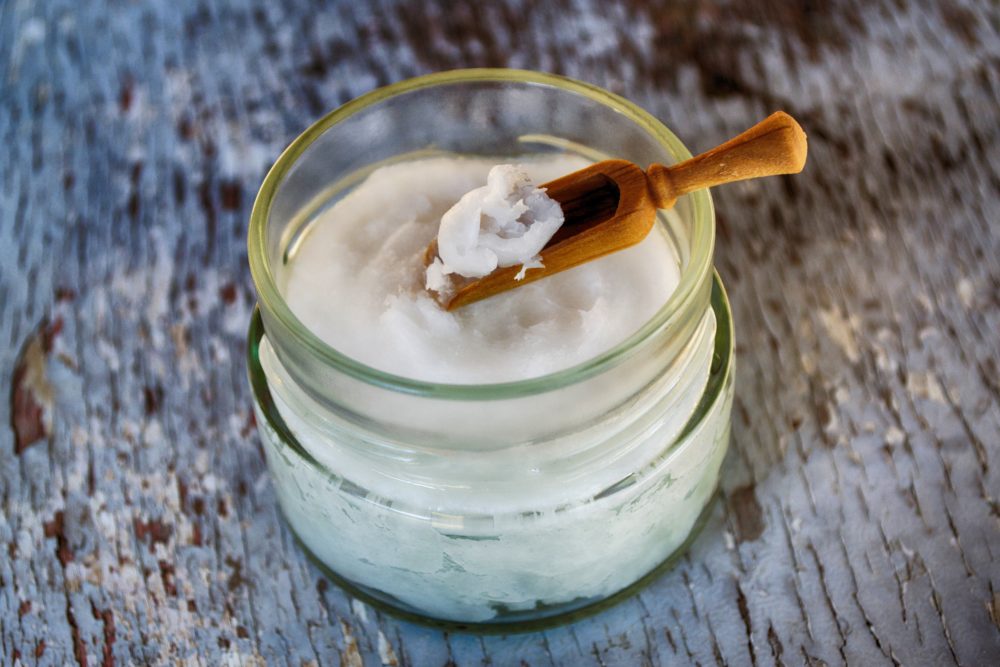
We are very excited to finally have coconut oil in stock and we are somewhat in love with this product. Whether you are putting it on your skin, hair, dog or in your body, this product has become incredibly popular in recent years and with good reason. But, as with any popular product, there is always a risk that popularity comes at a cost to someone or something along the way. This post gives a bit of information about where our coconut oil comes from and what it can be used for. Let us know what you think.
We have worked hard to find a supplier whose ethos matches our own (meaning valuing planet, and people, over profit). This is always the first step in introducing any new product and is no different here. Our coconut oil comes from the Coconut Merchant. They have been great at answering all our questions about the production methods and impacts of this product so do ask us anything and we will do our best to answer. Below provides an overview of what we have found out about this coconut oil production.
Social impacts
When we are buying products from overseas, particularly developing countries, there is always a risk that someone along the way is getting exploited without our knowledge. Not so with this product. Our coconut oil supplier buys directly from farmers and farmer cooperatives to ensure they get a fair price for their products. They also pay up to 20% above the market rate for the coconuts. Producers are based in Sri Lanka, Thailand, Vietnam, the Philippines and Indonesia. The farmers are also assisted in developing commercially viable products from under-utilised produce. This helps bring new, exciting products to the market but also provides additional financial stability for the farmers.
As well as the risk of financial exploitation, production overseas can have damaging health impacts. The Ethical Consumer website states that one of the things we should all be looking for when buying coconut oil is that it is organic. This is to avoid workers being exposed to agrochemicals which can have serious health impacts. Our coconut oil is, of course, organic so workers are not exposed to agrochemicals.
Click here to read a case study about one of the farmers who supplies this lovely coconut oil.
Environmental impacts
Once we started looking into various brands of coconut oil, we were horrified to learn that in many cases producers are exploiting monkeys to harvest the nuts. What started off as a sensible means to harvest coconuts on a small scale (much like sheep dogs are used in Wales), has become exploitation and animal cruelty. As demand has grown for coconut products, big companies have begun taking monkeys from the wild at a young age, killing parents and chaining the young monkeys to handlers, forcing them to harvest coconuts all day. We are proud to say that the coconut oil we sell has been harvested entirely by humans.
Did you know that coconut oil production actually has the lowest carbon emissions of any cooking oil? Less than half the carbon emissions of olive oil kilogram to kilogram (Table from the Ethical Consumer). Of course, this doesn’t take into account transportation but, using sea freight can keep this low.

If you are wanting to buy from UK farmers, then rapeseed oil is really the only way to go (and we have some lovely stuff in our shop 😉)
Uses of coconut oil
On a more practical note, I’m sure some of you are asking what coconut oil can be used for. Well, the actual evidence varies in reliability but below are some popular uses and some which I have used and found to be effective.
Moisturiser – coconut oil can be used as a moisturiser for your skin and is thought to be good for preventing wrinkles and treating eczema, although this is not proven. Bear in mind though, if you have oily skin, putting any oil on it might not be such a good idea as it will still block pores if not thoroughly washed off.
Makeup remover – we get lots of people asking us about plastic free make up remover and I always recommend coconut oil. I don’t really wear makeup these days but I know many people do and it can seem impossible to avoid plastic bottles of makeup remover lotion or the dreaded wet wipes to get it off. The issue is that a lot of make up is now water proof (for obvious reasons) so an oil makes it easier to remove. Just take a small amount of coconut oil, rub between your hands then over your face. Then use a damp reusable makeup wipe or flannel to wipe off then rinse your face.
Antifungal – there is a lot of information online about the antimocrobial and antifungal properties of coconut oil but it seems these are based on some quite weak links to science. In my experience though, coconut oil is effective in treating athletes foot. Just rub a small amount on the affected area daily until the symptoms are no longer visible.
Hair care – there are claims that coconut oil reduces hair breakage, improves scalp health and encourages hair growth. Again, solid evidence is scarce but I have used this oil on my hair and found it to be effective at reviving it when it is particularly dry. Melt some coconut oil and comb through hair. Leave for around half an hour then wash as normal (or perhaps a little more thoroughly than normal). I have also done this with olive oil and the coconut oil smells a lot better although both were similarly effective. Just make sure to get all the oil out of your hair when you wash it!
Health benefits – coconut oil was heralded a ‘superfood’ not so many years ago and indeed there are claims that consumption of this oil aids weight loss, lowers cholesterol, boosts mental performance, prevents Alzheimer’s and provides a good source of antioxidants. These claims are often based on some fairly long leaps of logic from scientific studies. The fact is, The British Nutrition Foundation has found that “there is no strong scientific evidence to support health benefits from eating coconut oil”. Oh well, it still tastes delicious!
Homemade personal care products – for example you can make your own deodorant using coconut oil as a base. Check out the Soil Association recipe here
In conclusion, despite the lack of much solid scientific evidence for many of the claims made on the internet for coconut oil, it is unlikely to do much if any harm. The only potential risks to be aware of are that firstly, coocnut oil is high in saturated fat (more so than lard) so do beware how much you are consuming, and secondly, as with any oil, when used on your skin it can block pores, particularly if you suffer from oily skin.
Have you tried any natural remedies with coconut oil which you found to be effective? Or perhaps you have a recipe which uses this delicious product. We love to hear about how you use products we sell.
